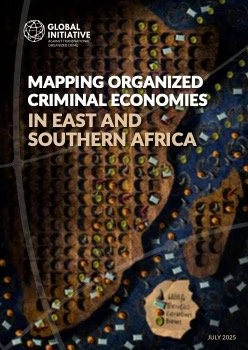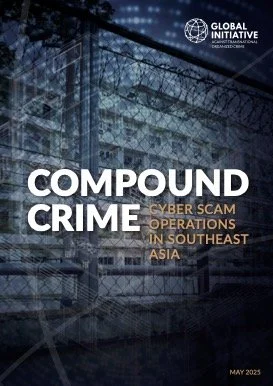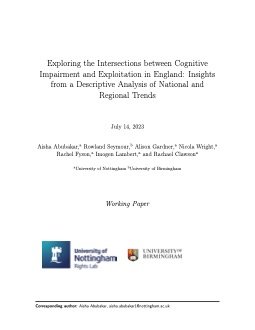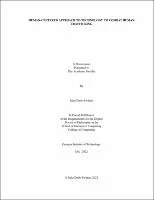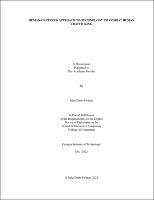Compiled by Julia Stanyard, Michael McLaggan, Aron Hyman, Julian Rademeyer, Jenni Irish-Qhobosheane, Matt Herbert, Jason Eligh, Marcena Hunter and Livia Wagner
East and Southern Africa (ESA) is a pivotal node for organized crime, connecting regional criminal markets to global networks. From the shores of Somalia to border crossings and international air and seaports in Ethiopia, Kenya, Tanzania, Mozambique, Zimbabwe, South Africa and Namibia, the region serves as a thriving source, hub and conduit for a wide variety of illegal commodities.
For example, heroin trafficked from Afghanistan via Pakistan and Iran is shipped across the Arabian Sea and Indian Ocean by dhow before it is deposited in northern Mozambique and Tanzania. There, it splits into two primary supply lines: one of higher purity bound for international markets in Europe and Australia, and another that is significantly adulterated and consumed in towns and villages across ESA.
Rhino horn is smuggled by air from Johannesburg and Addis Ababa, routed through Dubai and Doha and sometimes Paris and London to throw off law enforcement. Ivory departs in shipping containers from ports in Dar es Salaam, Nampula and Durban, ending up in Singapore, Sihanoukville, Huangpu and Haiphong. Gold mined illegally in Zimbabwe’s mineral-rich Kwekwe gold fields and deep shaft mines in the towns of Krugersdorp, Carletonville, Klerksdorp and Welkom on South Africa’s Vaal Reef is processed and eventually laundered through Dubai. Gold is smuggled by the tonne into countries along the strife-torn Democratic Republic of Congo (DRC)’s eastern border and laundered through Rwanda, Burundi, Uganda, Tanzania and the United Arab Emirates (UAE). In northern Mozambique and South Africa’s KwaZulu-Natal province, Islamic State-aligned insurgents and supporters have been implicated in criminal economies, gold smuggling, and kidnapping and extortion schemes to raise funds.
In addition to local criminal actors, the region has attracted a coterie of international criminal players. For instance, networks from China, Pakistan and Iran are known to interface with African intermediaries for drug trafficking (drug precursor chemicals, methamphetamine and heroin) and wildlife smuggling (notably of abalone and ivory). In Southern Africa, Nigerian and Congolese syndicates, often operating from hubs such as Johannesburg, coordinate regional drug distribution and financial fraud schemes while also connecting to global diaspora networks.
Yet this chaotic mixture of different criminal commodities and networks is, in many ways, shaped by geography and coalesces around a spider’s web of regional hubs and economic centres. Environmental, social and regional dynamics in hinterlands allow warlords and smugglers to thrive, while bustling trade hubs provide cover for clandestine flows and access to key transport links. In urban slums, neglected towns and remote rural communities, criminal actors and parallel illicit economies rapidly fill the void left by an often absent state. Ancient trade and migratory routes over mountains and along rivers and coastlines that long pre-date colonial borders allow for the largely untrammelled movement of people and goods, both licit and illicit. This means many of these trafficking networks and criminal groups are found concentrated in certain illicit hubs.
The challenges in countering this are enormous. For example, Bole International Airport in Ethiopia, a key smuggling hub for extractives, wildlife products, people and drugs, handles more than 24 million passengers, 100,000 flights, 50 million pieces of luggage and around 226,000 tonnes of cargo every year. Yet it lacks sufficient screening equipment, staff and sniffer dogs. The South African port of Durban, notorious for its inefficiency, corruption and drug trafficking, handles around 60% of South Africa’s container traffic: 2.9 million 20-foot-equivalent units per year. Only a fraction can feasibly be scanned or searched.
This report aims to define where the illicit hubs of the region are and explain which factors shape the geography of organized crime in ESA across four main markets: drugs, wildlife, extractives, and human trafficking and smuggling. These illicit markets are often looked at in isolation by enforcement bodies, policymakers and analysts. While this is often justified, as it means action can be taken against a particular form of illicit trade, looking at a range of illicit markets together can better demonstrate where convergence occurs and illuminate the common factors that shape the geographical concentrations of these criminal markets.
Geneva, SWIT: Global Initiative against Transnational Organized Crime, 2025. 86p.


